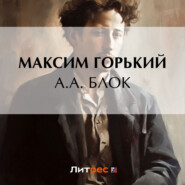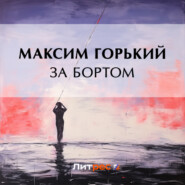По всем вопросам обращайтесь на: info@litportal.ru
(©) 2003-2025.
✖
Mother
Настройки чтения
Размер шрифта
Высота строк
Поля
"That's nonsense, comrade!"
"Yes, I'll incommode you," he said faintly.
"You keep still. That's better for you."
The mother stood back of Sofya, and putting her hand on her shoulders peered with a smile into the face of the sick man. She related how he had raved in the presence of the cabman and frightened her by his lack of caution. Ivan heard her; his eyes turned feverishly, he smacked his lips, and at times exclaimed in a confused low voice: "Oh, what a fool I am!"
"We'll leave you here," Sofya said, straightening out the blanket. "Rest."
The mother and Sofya went to the dining room and conversed there in subdued voices about the events of the day. They already regarded the drama of the burial as something remote, and looked with assurance toward the future in deliberating on the work of the morrow. Their faces wore a weary expression, but their thoughts were bold.
They spoke of their dissatisfaction with themselves. Nervously moving in his chair and gesticulating animatedly the physician, dulling his thin, sharp voice with an effort, said:
"Propaganda! propaganda! There's too little of it now. The young workingmen are right. We must extend the field of agitation. The workingmen are right, I say."
Nikolay answered somberly:
"From everywhere come complaints of not enough literature, and we still cannot get a good printing establishment. Liudmila is wearing herself out. She'll get sick if we don't see that she gets assistance."
"And Vyesovshchikov?" asked Sofya.
"He cannot live in the city. He won't be able to go to work until he can enter the new printing establishment. And one man is still needed for it."
"Won't I do?" the mother asked quietly.
All three looked at her in silence for a short while.
"No, it's too hard for you, Nilovna," said Nikolay. "You'll have to live outside the city and stop your visits to Pavel, and in general – "
With a sigh the mother said:
"For Pasha it won't be a great loss. And so far as I am concerned these visits, too, are a torment; they tear out my heart. I'm not allowed to speak of anything; I stand opposite my son like a fool. And they look into my mouth and wait to see something come out that oughtn't."
Sofya groped for the mother's hand under the table and pressed it warmly with her thin fingers. Nikolay looked at the mother fixedly while explaining to her that she would have to serve in the new printing establishment as a protection to the workers.
"I understand," she said. "I'll be a cook. I'll be able to do it; I can imagine what's needed."
"How persistent you are!" remarked Sofya.
The events of the last few days had exhausted the mother; and now as she heard of the possibility of living outside the city, away from its bustle, she greedily grasped at the chance.
But Nikolay changed the subject of conversation.
"What are you thinking about, Ivan?" He turned to the physician.
Raising his head from the table, the physician answered sullenly:
"There are too few of us. That's what I'm thinking of. We positively must begin to work more energetically, and we must persuade Pavel and Andrey to escape. They are both too invaluable to be sitting there idle."
Nikolay lowered his brows and shook his head in doubt, darting a glance at the mother.
As she realized the embarrassment they must feel in speaking of her son in her presence, she walked out into her own room.
There, lying in bed with open eyes, the murmur of low talking in her ears, she gave herself up to anxious thoughts. She wanted to see her son at liberty, but at the same time the idea of freeing him frightened her. She felt that the struggle around her was growing keener and that a sharp collision was threatening. The silent patience of the people was wearing away, yielding to a strained expectation of something new. The excitement was growing perceptibly. Bitter words were tossed about. Something novel and stirring was wafted from all quarters; every proclamation evoked lively discussions in the market place, in the shops, among servants, among workingmen. Every arrest aroused a timid, uncomprehending, and sometimes unconscious sympathy when judgment regarding the causes of the arrest was expressed. She heard the words that had once frightened her – riot, socialism, politics – uttered more and more frequently among the simple folk, though accompanied by derision. However, behind their ridicule it was impossible to conceal an eagerness to understand, mingled with fear and hope, with hatred of the masters and threats against them.
Agitation disturbed the settled, dark life of the people in slow but wide circles. Dormant thoughts awoke, and men were shaken from their usual forced calm attitude toward daily events. All this the mother saw more clearly than others, because she, better than they, knew the dismal, dead face of existence; she stood nearer to it, and now saw upon it the wrinkles of hesitation and turmoil, the vague hunger for the new. She both rejoiced over the change and feared it. She rejoiced because she regarded this as the cause of her son; she feared because she knew that if he emerged from prison he would stand at the head of all, in the most dangerous place, and – he would perish.
She often felt great thoughts needful to everybody stirring in her bosom, but scarcely ever was able to make them live in words; and they oppressed her heart with a dumb, heavy sadness. Sometimes the image of her son grew before her until it assumed the proportions of a giant in the old fairy tales. He united within himself all the honest thoughts she had heard spoken, all the people that she liked, everything heroic of which she knew. Then, moved with delight in him, she exulted in quiet rapture. An indistinct hope filled her. "Everything will be well – everything!" Her love, the love of a mother, was fanned into a flame, a veritable pain to her heart. Then the motherly affection hindered the growth of the broader human feeling, burned it; and in place of a great sentiment a small, dismal thought beat faint-heartedly in the gray ashes of alarm: "He will perish; he will fall!"
Late that night the mother sank into a heavy sleep, but rose early, her bones stiff, her head aching. At midday she was sitting in the prison office opposite Pavel and looking through a mist in her eyes at his bearded, swarthy face. She was watching for a chance to deliver to him the note she held tightly in her hand.
"I am well and all are well," said Pavel in a moderated voice. "And how are you?"
"So so. Yegor Ivanovich died," she said mechanically.
"Yes?" exclaimed Pavel, and dropped his head.
"At the funeral the police got up a fight and arrested one man," the mother continued in her simple-hearted way.
The thin-lipped assistant overseer of the prison jumped from his chair and mumbled quickly:
"Cut that out; it's forbidden! Why don't you understand? You know politics are prohibited."
The mother also rose from her chair, and as if failing to comprehend him, she said guiltily:
"I wasn't discussing politics. I was telling about a fight – and they did fight; that's true. They even broke one fellow's head."
"All the same, please keep quiet – that is to say, keep quiet about everything that doesn't concern you personally – your family; in general, your home."
Aware that his speech was confused, he sat down in his chair and arranged papers.
"I'm responsible for what you say," he said sadly and wearily.
The mother looked around and quickly thrust the note into Pavel's hand. She breathed a deep sigh of relief.
"I don't know what to speak about."
Pavel smiled:
"I don't know either."
"Then why pay visits?" said the overseer excitedly. "They have nothing to say, but they come here anyhow and bother me."
"Will the trial take place soon?" asked the mother after a pause.
"The procurator was here the other day, and he said it will come off soon."
"You've been in prison half a year already!"
"Yes, I'll incommode you," he said faintly.
"You keep still. That's better for you."
The mother stood back of Sofya, and putting her hand on her shoulders peered with a smile into the face of the sick man. She related how he had raved in the presence of the cabman and frightened her by his lack of caution. Ivan heard her; his eyes turned feverishly, he smacked his lips, and at times exclaimed in a confused low voice: "Oh, what a fool I am!"
"We'll leave you here," Sofya said, straightening out the blanket. "Rest."
The mother and Sofya went to the dining room and conversed there in subdued voices about the events of the day. They already regarded the drama of the burial as something remote, and looked with assurance toward the future in deliberating on the work of the morrow. Their faces wore a weary expression, but their thoughts were bold.
They spoke of their dissatisfaction with themselves. Nervously moving in his chair and gesticulating animatedly the physician, dulling his thin, sharp voice with an effort, said:
"Propaganda! propaganda! There's too little of it now. The young workingmen are right. We must extend the field of agitation. The workingmen are right, I say."
Nikolay answered somberly:
"From everywhere come complaints of not enough literature, and we still cannot get a good printing establishment. Liudmila is wearing herself out. She'll get sick if we don't see that she gets assistance."
"And Vyesovshchikov?" asked Sofya.
"He cannot live in the city. He won't be able to go to work until he can enter the new printing establishment. And one man is still needed for it."
"Won't I do?" the mother asked quietly.
All three looked at her in silence for a short while.
"No, it's too hard for you, Nilovna," said Nikolay. "You'll have to live outside the city and stop your visits to Pavel, and in general – "
With a sigh the mother said:
"For Pasha it won't be a great loss. And so far as I am concerned these visits, too, are a torment; they tear out my heart. I'm not allowed to speak of anything; I stand opposite my son like a fool. And they look into my mouth and wait to see something come out that oughtn't."
Sofya groped for the mother's hand under the table and pressed it warmly with her thin fingers. Nikolay looked at the mother fixedly while explaining to her that she would have to serve in the new printing establishment as a protection to the workers.
"I understand," she said. "I'll be a cook. I'll be able to do it; I can imagine what's needed."
"How persistent you are!" remarked Sofya.
The events of the last few days had exhausted the mother; and now as she heard of the possibility of living outside the city, away from its bustle, she greedily grasped at the chance.
But Nikolay changed the subject of conversation.
"What are you thinking about, Ivan?" He turned to the physician.
Raising his head from the table, the physician answered sullenly:
"There are too few of us. That's what I'm thinking of. We positively must begin to work more energetically, and we must persuade Pavel and Andrey to escape. They are both too invaluable to be sitting there idle."
Nikolay lowered his brows and shook his head in doubt, darting a glance at the mother.
As she realized the embarrassment they must feel in speaking of her son in her presence, she walked out into her own room.
There, lying in bed with open eyes, the murmur of low talking in her ears, she gave herself up to anxious thoughts. She wanted to see her son at liberty, but at the same time the idea of freeing him frightened her. She felt that the struggle around her was growing keener and that a sharp collision was threatening. The silent patience of the people was wearing away, yielding to a strained expectation of something new. The excitement was growing perceptibly. Bitter words were tossed about. Something novel and stirring was wafted from all quarters; every proclamation evoked lively discussions in the market place, in the shops, among servants, among workingmen. Every arrest aroused a timid, uncomprehending, and sometimes unconscious sympathy when judgment regarding the causes of the arrest was expressed. She heard the words that had once frightened her – riot, socialism, politics – uttered more and more frequently among the simple folk, though accompanied by derision. However, behind their ridicule it was impossible to conceal an eagerness to understand, mingled with fear and hope, with hatred of the masters and threats against them.
Agitation disturbed the settled, dark life of the people in slow but wide circles. Dormant thoughts awoke, and men were shaken from their usual forced calm attitude toward daily events. All this the mother saw more clearly than others, because she, better than they, knew the dismal, dead face of existence; she stood nearer to it, and now saw upon it the wrinkles of hesitation and turmoil, the vague hunger for the new. She both rejoiced over the change and feared it. She rejoiced because she regarded this as the cause of her son; she feared because she knew that if he emerged from prison he would stand at the head of all, in the most dangerous place, and – he would perish.
She often felt great thoughts needful to everybody stirring in her bosom, but scarcely ever was able to make them live in words; and they oppressed her heart with a dumb, heavy sadness. Sometimes the image of her son grew before her until it assumed the proportions of a giant in the old fairy tales. He united within himself all the honest thoughts she had heard spoken, all the people that she liked, everything heroic of which she knew. Then, moved with delight in him, she exulted in quiet rapture. An indistinct hope filled her. "Everything will be well – everything!" Her love, the love of a mother, was fanned into a flame, a veritable pain to her heart. Then the motherly affection hindered the growth of the broader human feeling, burned it; and in place of a great sentiment a small, dismal thought beat faint-heartedly in the gray ashes of alarm: "He will perish; he will fall!"
Late that night the mother sank into a heavy sleep, but rose early, her bones stiff, her head aching. At midday she was sitting in the prison office opposite Pavel and looking through a mist in her eyes at his bearded, swarthy face. She was watching for a chance to deliver to him the note she held tightly in her hand.
"I am well and all are well," said Pavel in a moderated voice. "And how are you?"
"So so. Yegor Ivanovich died," she said mechanically.
"Yes?" exclaimed Pavel, and dropped his head.
"At the funeral the police got up a fight and arrested one man," the mother continued in her simple-hearted way.
The thin-lipped assistant overseer of the prison jumped from his chair and mumbled quickly:
"Cut that out; it's forbidden! Why don't you understand? You know politics are prohibited."
The mother also rose from her chair, and as if failing to comprehend him, she said guiltily:
"I wasn't discussing politics. I was telling about a fight – and they did fight; that's true. They even broke one fellow's head."
"All the same, please keep quiet – that is to say, keep quiet about everything that doesn't concern you personally – your family; in general, your home."
Aware that his speech was confused, he sat down in his chair and arranged papers.
"I'm responsible for what you say," he said sadly and wearily.
The mother looked around and quickly thrust the note into Pavel's hand. She breathed a deep sigh of relief.
"I don't know what to speak about."
Pavel smiled:
"I don't know either."
"Then why pay visits?" said the overseer excitedly. "They have nothing to say, but they come here anyhow and bother me."
"Will the trial take place soon?" asked the mother after a pause.
"The procurator was here the other day, and he said it will come off soon."
"You've been in prison half a year already!"

















